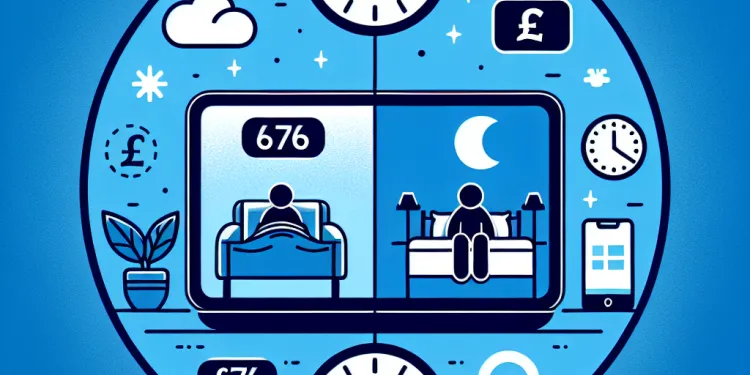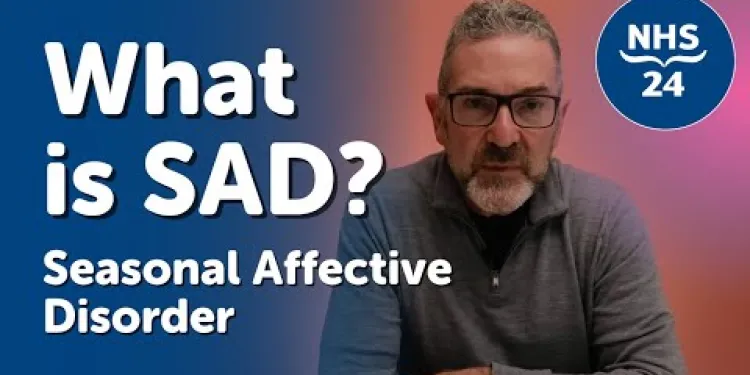
Find Help
More Items From Ergsy search
-

What is the relationship between cortisol and the circadian rhythm?
Relevance: 100%
-

How is cortisol regulated in the body?
Relevance: 58%
-

What role does cortisol play in the body?
Relevance: 50%
-

What is cortisol?
Relevance: 49%
-

What is the normal pattern of cortisol secretion throughout the day?
Relevance: 47%
-

What factors can influence cortisol levels?
Relevance: 45%
-

Can cortisol levels be measured?
Relevance: 36%
-

Can cortisol levels impact mood and mental health?
Relevance: 35%
-

Is my abnormal heart rhythm dangerous?
Relevance: 35%
-

Is there a connection between cortisol and the immune system?
Relevance: 33%
-

Is my abnormal heart rhythm dangerous?
Relevance: 33%
-

What is the role of cortisol in metabolism?
Relevance: 32%
-

Can diet influence cortisol levels?
Relevance: 31%
-

Can exercise influence cortisol levels?
Relevance: 31%
-

Are there any lifestyle changes that can help regulate cortisol levels?
Relevance: 31%
-

What can low levels of cortisol cause?
Relevance: 30%
-

What can high levels of cortisol cause?
Relevance: 30%
-

How does cortisol affect the body's stress response?
Relevance: 29%
-

How can stress management affect cortisol levels?
Relevance: 29%
-

How do cortisol levels differ between acute and chronic stress?
Relevance: 29%
-

Is blue light from screens a factor in affecting sleep quality?
Relevance: 20%
-

Is there a specific time of day when coffee has the most impact on blood pressure?
Relevance: 20%
-

What causes SAD?
Relevance: 19%
-

What is Cushing's syndrome?
Relevance: 15%
-

How does walking to work impact mental health?
Relevance: 15%
-

What is seasonal affective disorder - or SAD?
Relevance: 13%
-

What is Seasonal Affective Disorder (SAD)?
Relevance: 13%
-

What is a defibrillator?
Relevance: 13%
-

What is the role of a defibrillator in CPR?
Relevance: 13%
-

Is there a difference in screen time impact on sleep between weekdays and weekends?
Relevance: 13%
-

How does a defibrillator work?
Relevance: 13%
-

Can reducing screen time improve sleep quality?
Relevance: 12%
-

What is a Defibrallator?
Relevance: 10%
-

Can a defibrillator restart a stopped heart?
Relevance: 10%
-

What is the difference between an AED and an ICD?
Relevance: 10%
-

Can Music Therapy Be the Key to Reducing Anxiety?
Relevance: 10%
-

What is Seasonal Affective Disorder? (SAD)
Relevance: 10%
-

How does screen time affect sleep quality?
Relevance: 10%
-

Can stress affect my Type 2 Diabetes?
Relevance: 9%
-

Are children more affected by screen time in relation to sleep than adults?
Relevance: 9%
The Role of Cortisol in the Body
Cortisol, often referred to as the "stress hormone," is a steroid hormone produced by the adrenal glands, which are located on top of each kidney. It plays a significant role in various bodily functions, including regulating metabolism, reducing inflammation, and controlling blood sugar levels. Beyond its basic physiological roles, cortisol is also intricately involved in the body's response to stress. During a stressful situation, cortisol levels rise, providing a quick burst of energy and heightened memory functions. However, this hormone is not just limited to stress response—it also plays a pivotal role in maintaining the body's internal clock, known as the circadian rhythm.
Understanding Circadian Rhythm
The circadian rhythm is a natural, internal process that regulates the sleep-wake cycle and repeats roughly every 24 hours. This internal body clock is influenced by environmental cues, especially light, which help to synchronize the cycle. The rhythm is responsible for determining sleep patterns, feeding behavior, hormone release, and other vital bodily functions. A well-aligned circadian rhythm is crucial for maintaining good health and well-being. Disruptions to this rhythm are linked to various health problems, including sleep disorders, depression, and metabolic issues.
The Interaction Between Cortisol and Circadian Rhythm
Cortisol secretion follows a diurnal pattern aligned closely with the circadian rhythm. Cortisol levels fluctuate throughout the day, reaching their peak in the early morning to help us wake up and gradually declining towards the evening and night to allow for restful sleep. This fluctuation is crucial for the regulation of the sleep-wake cycle, energy levels, and overall alertness. The synchronization of cortisol release with the circadian rhythm aligns with our daily routines and external environment, providing the necessary energy to start the day while facilitating relaxation and recovery at night.
The Impact of Disrupted Cortisol Patterns
When the natural cortisol rhythm is disrupted, it can lead to several health issues. Stress, irregular sleep schedules, shift work, and exposure to artificial light at night can all interfere with the natural cortisol cycle. Prolonged disruption in cortisol patterns can contribute to chronic stress, fatigue, impaired cognitive functions, and increased susceptibility to illness. Maintaining a regular circadian rhythm thus requires lifestyle adjustments, such as establishing consistent sleep routines, managing stress effectively, and reducing exposure to screens before bedtime.
Conclusion: The Balance of Hormones and Time
Understanding the relationship between cortisol and the circadian rhythm underscores the importance of hormonal balance in maintaining health and well-being. By aligning daily practices with the body's natural rhythm, individuals can promote better sleep, energy levels, and stress management. The interplay between cortisol and the circadian rhythm highlights the complexity of biological processes and the need for lifestyle choices that support these natural cycles. This harmonious alignment not only enhances physical health but also boosts mental and emotional well-being.
The Role of Cortisol in the Body
Cortisol is a hormone that helps our body deal with stress. It is made by small glands near our kidneys. Cortisol helps with many important jobs in the body, like controlling how we use food for energy, reducing swelling, and keeping our blood sugar steady. When we feel stressed, our body makes more cortisol. This gives us energy and helps us remember things better. Cortisol also helps us keep our body's daily schedule, called the circadian rhythm.
Understanding Circadian Rhythm
The circadian rhythm is our body’s natural clock. It tells us when to sleep and wake up. This clock works in a 24-hour cycle. Light, like sunlight, helps keep this clock on time. It tells our body when it’s time to be awake, eat, or sleep. Keeping our clock on track is very important for our health. If it gets out of order, it can cause problems like trouble sleeping, feeling sad, or changes in how we use food.
The Interaction Between Cortisol and Circadian Rhythm
The amount of cortisol in our body changes during the day. It is high in the morning when we wake up. This helps us feel awake and ready for the day. At night, cortisol levels go down, helping us relax and sleep. This change helps us have energy during the day and rest at night. Having a regular daily routine helps keep our cortisol and circadian rhythm in sync.
The Impact of Disrupted Cortisol Patterns
When our cortisol pattern is messed up, it can lead to problems. Stress, not sleeping regularly, working at night, or using screens too much before bed can confuse our body. If cortisol levels stay off for too long, it can cause long-lasting stress, make us tired, and can even worsen our memory. To help keep things in balance, it’s good to have the same bedtime, handle stress well, and avoid screens before sleeping.
Conclusion: The Balance of Hormones and Time
Understanding how cortisol and the circadian rhythm work together is important for our health. By following our body's natural clock, we can get better sleep, have more energy, and manage stress. Keeping our hormone levels balanced helps us be healthier and happier, both in our body and mind.
Frequently Asked Questions
What is cortisol?
Cortisol is a steroid hormone produced by the adrenal glands, involved in regulating metabolism, immune response, and stress.
What is the circadian rhythm?
The circadian rhythm is the body's internal clock that regulates the sleep-wake cycle and other physiological processes over a roughly 24-hour period.
How is cortisol related to the circadian rhythm?
Cortisol levels naturally fluctuate throughout the day, peaking in the morning and declining in the evening, reflecting the circadian rhythm.
When are cortisol levels highest during the day?
Cortisol levels are highest in the early morning, typically around 7-9 AM, helping to wake the body up.
When are cortisol levels lowest?
Cortisol levels are lowest in the late evening and early part of the night, promoting rest and sleep.
Why does cortisol peak in the morning?
Cortisol peaks in the morning to help increase alertness, boost energy levels, and prepare the body for the day ahead.
How does cortisol affect sleep?
Elevated cortisol levels can disrupt sleep by reducing sleep quality and increasing wakefulness, particularly if spikes occur at night.
Can the circadian rhythm affect cortisol production?
Yes, disruptions to the circadian rhythm, such as shift work or jet lag, can alter normal cortisol patterns.
What factors can disrupt the normal cortisol circadian rhythm?
Factors like stress, irregular sleep schedules, shift work, and jet lag can disrupt the normal cortisol rhythm.
How does stress impact cortisol levels?
Stress triggers increased cortisol production, which can alter its circadian pattern if stress is persistent or chronic.
Is cortisol only tied to the sleep-wake cycle?
While strongly linked to the sleep-wake cycle, cortisol also plays a role in metabolic functions, immune response, and stress.
Can lifestyle changes regulate cortisol and circadian rhythm?
Yes, maintaining a regular sleep schedule, reducing stress, and healthy lifestyle choices can help regulate cortisol levels and align circadian rhythm.
Does exercise influence cortisol and circadian rhythm?
Regular exercise can help stabilize cortisol levels and promote a healthy circadian rhythm, but excessive exercise can elevate cortisol.
Can diet affect cortisol levels and circadian rhythm?
Yes, a balanced diet, including regular meals, can help maintain normal cortisol levels, while poor diet may disrupt the circadian rhythm.
How does light exposure impact cortisol and circadian rhythm?
Natural light exposure helps reinforce the circadian rhythm, impacting hormone levels, including cortisol, by regulating wakefulness and sleepiness.
Can cortisol testing indicate circadian rhythm health?
Yes, cortisol tests can help evaluate circadian rhythm health by assessing whether cortisol levels follow normal daily patterns.
What are the symptoms of disrupted cortisol and circadian rhythm?
Symptoms may include sleep disturbances, fatigue, irritability, and impaired immune function.
Can cortisol supplements influence circadian rhythm?
Supplements should be used cautiously, as they can affect natural cortisol regulation and potentially disrupt circadian rhythms if mismanaged.
How does aging affect cortisol and circadian rhythms?
Aging may lead to less pronounced cortisol rhythms and altered circadian patterns, often resulting in sleep changes and higher evening cortisol.
Can meditation or mindfulness help regulate cortisol levels?
Yes, practices like meditation and mindfulness can reduce stress and help regulate cortisol levels, supporting a healthy circadian rhythm.
What is cortisol?
Cortisol is a chemical in your body. It is sometimes called the "stress chemical."
When you feel scared or worried, your body makes cortisol. It helps your body to act fast, like a superhero.
If you feel too much stress, your body makes a lot of cortisol. This is not always good, so it is important to stay calm and relaxed.
To help keep calm, you can try:
- Taking deep breaths
- Talking to someone you trust
- Going for a walk
- Listening to music
Cortisol is a type of hormone. Hormones are like helpers in our body that tell it what to do. Cortisol is made in special parts of your body called adrenal glands. It helps with three main things: it helps you use food for energy, keeps your body safe from sickness, and helps your body when you're stressed or worried.
If reading is hard, you can try using tools that read the text out loud for you. It's okay to ask someone you trust for help, too.
What is the body clock?
Your body clock tells you when to wake up and when to sleep. It helps you feel awake in the morning and sleepy at night.
The body clock is like a daily timer inside you. It keeps things in your body working on time.
Try to sleep and wake up at the same times every day. This helps your body clock work better.
If you need extra help, you can use tools like alarms or bedtime reminders on your phone.
The circadian rhythm is like a body clock inside you. It helps you know when to sleep and when to wake up. It also helps your body do other important things every day.
What is the link between cortisol and the body clock?
Cortisol is a stress hormone. The amount of cortisol in your body changes during the day. It is highest in the morning when you wake up. It gets lower in the evening before you go to sleep. This pattern is part of your body's internal clock.
When is cortisol highest in the day?
Cortisol is a hormone in your body.
Cortisol is highest:
- In the morning when you wake up.
Try this:
- Use a clock to check the time in the morning when you wake up.
- Ask an adult to help you learn more about cortisol.
Cortisol is a hormone in your body. It is highest early in the morning. This usually happens between 7 and 9 AM. It helps you wake up.
When is cortisol the lowest?
At night, your body helps you sleep by making less of a chemical called cortisol. This happens in the late evening and early night, so you can feel calm and rest well.
Why is cortisol highest in the morning?
Cortisol is a hormone in your body. It helps you wake up and feel alert. Cortisol levels are highest in the morning. This helps get you ready for the day.
To understand better, you can:
- Use a picture chart to see when cortisol goes up and down.
- Watch a video about cortisol and sleep.
- Talk with someone who can explain it to you.
Cortisol is a special thing that helps your body. It gets stronger in the morning. This helps wake you up, gives you energy, and gets you ready for the day.
How does cortisol affect sleep?
Cortisol is a chemical in your body. It helps you wake up in the morning. At night, you need less cortisol to sleep well. If your body makes too much cortisol at night, it can be hard to sleep. You might wake up a lot or not sleep deeply.
Here are some things that might help you sleep better:
- Relax before bedtime: Try to calm down before you go to sleep. You could read a book, take deep breaths, or listen to quiet music.
- Keep the same bedtime: Try to go to bed and wake up at the same times every day. This helps your body know when to sleep.
- Make your bedroom quiet and dark: A quiet and dark room can help you sleep better. You could use curtains to block light and try to keep noises out.
When your body has too much cortisol, it can make it hard to sleep well. This means you might not rest properly and could wake up a lot, especially if this happens at night.
Does the body's daily clock change how it makes cortisol?
Yes, changes to your sleep schedule, like working at night or traveling across time zones, can change how your body makes cortisol.
What things can change the cortisol day-night pattern?
Cortisol is a hormone that helps you feel awake during the day and sleepy at night. Here are some things that can change its pattern:
- Stress: Feeling worried or scared a lot can change how cortisol works.
- Sleep: Not getting enough sleep or sleeping at odd times can affect it.
- Light: Too much light at night or not enough during the day can change it.
- Food: Eating at irregular times can also have an effect.
To help keep the cortisol pattern normal, try these tips:
- Relax and do things you enjoy to reduce stress.
- Stick to a regular sleep schedule.
- Get outside during the day for natural light.
- Eat meals at regular times.
Things like stress, not sleeping at the same time each night, working at different times, and flying to another time zone can change how your body makes cortisol.
What happens to cortisol levels when you feel stressed?
When you feel worried or upset, your body makes something called cortisol.
More stress means more cortisol in your body.
Cortisol helps your body get ready to deal with problems.
You can use things like deep breathing, exercise, or talking to someone to feel calmer.
When we are stressed, our bodies make more of a chemical called cortisol. If we are stressed a lot or for a long time, it can change how much cortisol we have at different times of the day.
Is cortisol only linked to sleep and being awake?
Cortisol helps with sleep and waking up. It also helps our bodies use food for energy, fight sickness, and handle stress.
Can changing how you live help control stress and sleep patterns?
Yes, going to bed and waking up at the same time every day can help. It is also good to try and feel calm and make healthy choices. This can help your body feel better.
Does exercise affect stress levels and body clock?
Does moving your body, like playing or working out, change how your body feels stress? Does it help with the times when your body likes to sleep and wake up?
To help understand this, you can:
- Use pictures or drawings to see how exercise helps.
- Try apps or videos that show exercises you can do.
- Ask an adult or a teacher to explain more.
Doing exercise often is good for you. It can help keep a balance of a special hormone called cortisol in your body. Cortisol is important for your body's daily cycle. But doing too much exercise can be bad and make too much cortisol.
Can food change stress levels and sleep patterns?
Eating healthy food at regular times can help keep your body's stress levels normal. If you don't eat well, it can mess up your body's natural clock.
How does light affect the body's stress and sleep cycle?
Sunlight helps you keep a good sleep schedule. It helps your body know when to wake up and when to feel sleepy. This is because sunlight helps with important body chemicals, like cortisol.
Can a cortisol test show if my body clock is healthy?
Your body has a clock inside. It helps you know when to sleep and wake up. This is called a circadian rhythm.
Cortisol is a chemical in your body. It can change if your body clock is not working well. A doctor can test your cortisol to see how your body clock is doing.
Tools like talking with a doctor or using calm music can help if your rhythm is off.
Yes, cortisol tests can check if your body's daily rhythm is healthy. It looks at whether your cortisol levels go up and down like they should each day.
What are the signs of problems with cortisol and body clock?
People might have problems sleeping, feel very tired, get grumpy, or get sick more easily.
Can cortisol supplements change body clock?
Cortisol is a hormone in your body. It helps you wake up and go to sleep.
Cortisol pills might change when you feel sleepy or awake.
Using a calendar or alarm can help keep your sleep schedule easy to follow.
Be careful with supplements. They can change how your body works and mess up your sleep patterns if you don't use them right.
How does getting older change cortisol and sleep patterns?
As people get older, their bodies change. This also changes how they feel and act.
Cortisol is a hormone in the body. It helps you handle stress, gives you energy, and helps you wake up. When you get older, the levels of cortisol can change.
Circadian rhythms are patterns in the body that tell you when to wake up and when to sleep. These patterns can change when you get older.
Getting older means changes in cortisol and sleep patterns. This can affect how you feel during the day.
To help with these changes, you can:
- Keep a regular bedtime.
- Get outside in the sunshine.
- Exercise regularly, but not too close to bedtime.
As people get older, their bodies change. This can make their sleep patterns and the levels of a stress hormone, called cortisol, different. Sometimes they might have trouble sleeping, and their cortisol levels can be higher at night.
Can calming exercises help with stress hormones?
Doing calming exercises like meditation or mindfulness can help manage stress. Stress makes our body produce a hormone called cortisol. High levels of cortisol can make you feel anxious or tired.
Calming exercises teach you to breathe deeply and relax. This can lower cortisol and make you feel better.
Here are some tips to try:
- Find a quiet place and sit comfortably.
- Close your eyes and breathe in slowly through your nose.
- Breathe out slowly through your mouth.
- Think of a happy place or a pleasant word to keep your mind focused.
You can also use apps or videos to guide you through these exercises.
Yes, things like meditation and mindfulness can help you feel less stressed. They can help keep your body balanced and make you feel better.
Useful Links
This website offers general information and is not a substitute for professional advice.
Always seek guidance from qualified professionals.
If you have any medical concerns or need urgent help, contact a healthcare professional or emergency services immediately.
- Ergsy carfully checks the information in the videos we provide here.
- Videos shown by Youtube after a video has completed, have NOT been reviewed by ERGSY.
- To view, click the arrow in centre of video.
- Most of the videos you find here will have subtitles and/or closed captions available.
- You may need to turn these on, and choose your preferred language.
- Go to the video you'd like to watch.
- If closed captions (CC) are available, settings will be visible on the bottom right of the video player.
- To turn on Captions, click settings .
- To turn off Captions, click settings again.
More Items From Ergsy search
-

What is the relationship between cortisol and the circadian rhythm?
Relevance: 100%
-

How is cortisol regulated in the body?
Relevance: 58%
-

What role does cortisol play in the body?
Relevance: 50%
-

What is cortisol?
Relevance: 49%
-

What is the normal pattern of cortisol secretion throughout the day?
Relevance: 47%
-

What factors can influence cortisol levels?
Relevance: 45%
-

Can cortisol levels be measured?
Relevance: 36%
-

Can cortisol levels impact mood and mental health?
Relevance: 35%
-

Is my abnormal heart rhythm dangerous?
Relevance: 35%
-

Is there a connection between cortisol and the immune system?
Relevance: 33%
-

Is my abnormal heart rhythm dangerous?
Relevance: 33%
-

What is the role of cortisol in metabolism?
Relevance: 32%
-

Can diet influence cortisol levels?
Relevance: 31%
-

Can exercise influence cortisol levels?
Relevance: 31%
-

Are there any lifestyle changes that can help regulate cortisol levels?
Relevance: 31%
-

What can low levels of cortisol cause?
Relevance: 30%
-

What can high levels of cortisol cause?
Relevance: 30%
-

How does cortisol affect the body's stress response?
Relevance: 29%
-

How can stress management affect cortisol levels?
Relevance: 29%
-

How do cortisol levels differ between acute and chronic stress?
Relevance: 29%
-

Is blue light from screens a factor in affecting sleep quality?
Relevance: 20%
-

Is there a specific time of day when coffee has the most impact on blood pressure?
Relevance: 20%
-

What causes SAD?
Relevance: 19%
-

What is Cushing's syndrome?
Relevance: 15%
-

How does walking to work impact mental health?
Relevance: 15%
-

What is seasonal affective disorder - or SAD?
Relevance: 13%
-

What is Seasonal Affective Disorder (SAD)?
Relevance: 13%
-

What is a defibrillator?
Relevance: 13%
-

What is the role of a defibrillator in CPR?
Relevance: 13%
-

Is there a difference in screen time impact on sleep between weekdays and weekends?
Relevance: 13%
-

How does a defibrillator work?
Relevance: 13%
-

Can reducing screen time improve sleep quality?
Relevance: 12%
-

What is a Defibrallator?
Relevance: 10%
-

Can a defibrillator restart a stopped heart?
Relevance: 10%
-

What is the difference between an AED and an ICD?
Relevance: 10%
-

Can Music Therapy Be the Key to Reducing Anxiety?
Relevance: 10%
-

What is Seasonal Affective Disorder? (SAD)
Relevance: 10%
-

How does screen time affect sleep quality?
Relevance: 10%
-

Can stress affect my Type 2 Diabetes?
Relevance: 9%
-

Are children more affected by screen time in relation to sleep than adults?
Relevance: 9%


